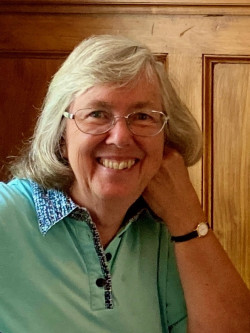See details of our past seminars below.
For enquiries about Te Ngira's seminar series, please contact Renae Dixon (renae.dixon@waikato.ac.nz)
If you would like to be kept informed of upcoming seminars, please click on this link to register your interest.
2023 series
 French biopolitics of populations: From Kanaky/New Caledonia to disenfranchised suburbs
French biopolitics of populations: From Kanaky/New Caledonia to disenfranchised suburbs
Presenter: Nacira Guénif
Date: Thursday, 6th July 2023 from 12pm to 1pm
Abstract:
As a colonial and national State, France is ruling and monitoring its population so that it meets its national identity assimilationist design, its so called colorblind universalism and imperialist interests. Distant colonial possessions scattered over three oceans, recast as overseas territories in the mid twentieth century, and urban peripheries are the enduring stage of a control and discipline French regime of population. Using birth, education, marriage, parenthood, migrations and citizenship, the French State domesticates populations come from former colonies and their offspring to the mainland and mixed populations including native people in its colonies to reach these goals. Drawing examples from suburban disenfranchised neighborhoods and from Kanaky/New Caledonia, this presentation will endeavor to cast light on authoritarian practices of a State that presents itself as liberal.
Bio:
Nacira Guénif is a Professor of sociology and anthropology at University Paris 8 Vincennes. In 2009, she was a Fulbright fellow at Wellesley College (Sociology) and Columbia University – (Institute for the Study of Culture, Literature and Society), and a Visiting Professor at the Institute of French Studies in NYU. Her Phd dissertation was awarded “Le prix le Monde de la recherche universitaire” and published by Grasset, in 2000, paperback edition Des beurettes in 2003, translated into Arabic in 2004.
Nacira contributes to researching, writing and public debates on im/mobilities, migrations, minorities and structural inequalities, systemic racism, ethnic and racial in/visibility, sexualisation and racialisation, de/colonial present, Islam and Moslems in Europe and beyond.
Join us here:
K.G.09 - https://waikato.zoom.us/j/95492778502
The experimental administrative population census (APC)
Presenter: Hannes Deiner
Date: Tuesday, 2nd May 2023 from 12pm to 12.50pm
Abstract:
Like many other NSOs, Stats NZ is looking at ways we can produce more relevant and timely statistics while also reducing respondent burden by (re-) using administrative data. The NZ Census has already adopted a combined model that uses administrative data to fill in any gaps left in the field enumeration. This approach was first used in 2018 when the field collection was faced with lower-than-expected response rates, and it is included in the 2023 Census by design, to ensure the final data is as high quality as possible. The experimental administrative population census (APC) is taking the idea one step further and examines the potential for census information to be produced from administrative data only.
The second iteration of the APC was released in October 2022. It is a time-series spanning 2006—2021 and covers demographic (age, sex, geography, number of children born), identity (detailed ethnicity, Māori descent, birthplace and years since arrival in NZ), as well as education, income, and work variables. The APC is designed to be released iteratively and provides data users the opportunity to provide feedback and be involved in its further development.
In this talk we will cover various technical aspects of the APC, highlight research opportunities it provides, describe areas of ongoing development, but also outline information needs that are not well covered in administrative data.
Bio:
Hannes is a senior design analyst in the Research and Development Hub which is part of Stats NZ's Method and Design group.
He received a PhD in mathematics from the University of Canterbury in 2008 and then spent a decade as a researcher working on topics in the intersection of logic, analysis, and the foundation of computer science.
In 2020 he changed interests with starting an MSc in (Bayesian) Statistics at the University of Canterbury, which was completed just after joining Stats NZ in 2021. Since then he has worked on the use of admin data in deriving statistics and has been leading the work on the experimental administrative population census (APC).
Join us here:

Engineering for the future for a changing demographic in Aotearoa, New Zealand
Presenter: Ray Hudd
Date: Friday, 24th March 2023 from 12pm to 12.50pm
Abstract:
Civil engineering has been around for thousands of years. Many major developments have occurred since the industrial revolution resulting in many great advances in society. The basic physical principles remain unchanged even in our modern technological world with advanced computer based analysis techniques. However, in recent years there has been an increasing realisation that these solutions while meeting the physical parameters don’t always address the problems they were designed for. It is now recognised that more information and a broader perspective is needed when undertaking designs to ensure they meet the specific rather than generic needs of the individuals and groups they are intended to serve. To that end, a greater knowledge and understanding of changing population demographics and its changing requirements and priorities is needed as the basis of design decision making. This presentation will discuss the potential opportunities this approach presents and how it can lead to sustainable infrastructure solutions to meet the people of Aotearoa's needs and aspirations into the future. Examples of engagement with communities relating to these different demographics will be used to illustrate how this can be applied in practice.
Bio:
Born in the North West of England near Liverpool. After graduating with a BSc (Hons) in Civil Engineering and completing his PhD in concrete permeability test methods he worked as a product developer in the construction material supply sector developing new products for projects in the UK, Europe and Asia and New Zealand after emigrating here in 1998. In addition to these Ray has also worked as a lifestyle farmer, an intelligence analyst for New Zealand Police, and processing and quality control roles in the agricultural sector. He started teaching Civil Engineering at the University of Waikato in 2019. His teaching includes materials, construction processes and civil engineering design. He has a keen interest in finding improved solutions to infrastructure development in the face of a changing society.
Join us here:

 The fertility curve: an under-used trove of demographic information
The fertility curve: an under-used trove of demographic information
Presenter: Marion Burkimsher
Date: Tuesday 14th Feb, 2023. 12pm to 1pm
Abstract:
What can a roughly bell-shaped curve tell us about the childbearing habits of a country? The fertility curve is a plot of births by age of women (usually, though could be of men). Even comparing solely developed countries the variations in shape of the curve are huge. Some have a single sharp mode, other countries have wide curves and some even have two peaks. Many have evolved from being left-skewed to right-skewed as women are having children later and later in life. So why is the curve important for demography? Because the TFR (total fertility rate) is defined as the area under the fertility curve and changes in the TFR ultimately determine whether a population will grow or shrink in size. This talk shows how the changing shape of the fertility curve over the past three decades has caused the TFR to fall, rise and, most recently, to fall again.
Bio:
Marion originates from the UK but has lived in France, on the border with Switzerland, for almost 40 years, and at heart she is a geographer. Her PhD was in glaciology but more recently she did an MSc in demography. Are these topics at all related? Yes, glaciers and population are both dynamic systems with inputs (snow, births) and outputs (meltwater, deaths). Marion likes to crunch numbers and make pretty graphs and make the results accessible to everyone.

